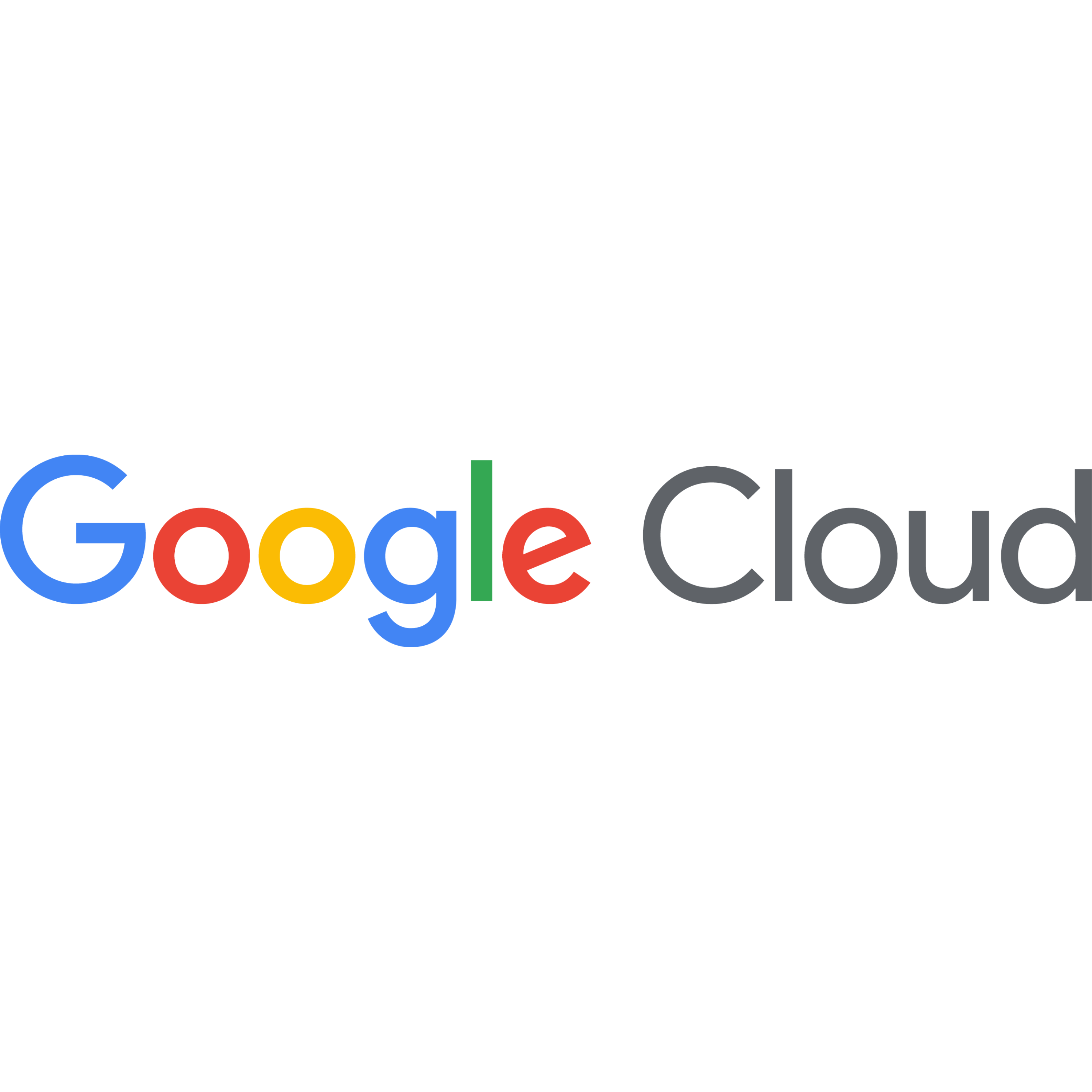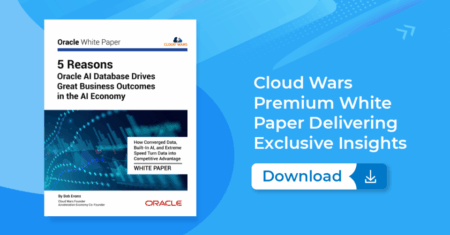
Two and a half years after Google Cloud signed a landmark transformation deal with Deutsche Bank, Germany’s largest bank has successfully transferred 1,300 databases to the cloud via Oracle’s Exadata Cloud@Customer database service.
So what’s Oracle doing in the middle of a huge Google Cloud transformation megaproject?
Welcome to the world of ubiquitous multi-cloud technology, in which the Cloud Wars Top 10 vendors — along with every other tech provider in the world — must learn to collaborate on customer initiatives eagerly and seamlessly, and to drop their competitive posturing at the customer’s edge.
While both Oracle and Google Cloud both have the capabilities to handle most or perhaps even all of Deutsche Bank’s needs, the decision to go with both cloud providers simultaneously gives the German financial services giant the flexibility to get the very best from each without encountering risk from being overly beholden to a single provider.
Here are some highlights from what Google Cloud and Oracle are doing for Deutsche Bank, which ranks #21 on a LexisNexis list of the world’s largest banks.
Google Cloud: Broad-Based Innovation Partner
In an article from two years ago headlined How Google Cloud Is Deutsche Bank’s Innovation Engine: 15 Examples, I wrote the following:
You can read the entire conversation here, but in the highlights I’ve pulled out below you’ll see how Deutsche Bank is aiming to overhaul not only its technology — as challenging as that is, it might be the easiest part — but also its culture, its business model, its approach to talent, and the core value it can offer to customers and clients.
To me, this is what the Cloud Wars are all about: big dreams and big ambitions, and a willingness to confront significant risk in partnership with world-class companies that are enabling their business customers to do things those customers could never have done before.
Those ambitions are the outgrowths of a landmark 10-year deal the companies signed in December of 2020, with Deutsche Bank offering this perspective in the Cloud Wars article cited above:
“Today marks a new chapter for Deutsche Bank,” said Bernd Leukert, Deutsche Bank’s Chief Technology, Data and Innovation Officer and Member of the Management Board. “With Google Cloud by our side, we have a strategic partner that will accelerate our technology transformation, enable us to use data more intelligently and provide a flexible and safe environment for us to quickly deliver new products and services. This is the blueprint for bringing together the relative strengths within banking and technology for the benefit of our clients.”
And just last week, Google Cloud CEO Thomas Kurian cited Deutsche Bank as one of a rapidly growing number of big corporations fully embracing GenAI in their daily operations. You can read all about that in GenAI Revolution Hits Deutsche Bank, Wendy’s, Uber, and More.
Oracle: Unmatched Database Capabilities and Scale
In parallel to those efforts with Google Cloud, Deutsche Bank has also been working very closely with Oracle on what I would say is one of the largest database migration and optimization projects I’ve ever seen: upgrading “7,000 Oracle Databases across the Frankfurt-based bank’s global data centers to newer versions running on a database cloud platform” in an initiative that “could save triple-digit millions of euros in costs,” according to a recent article on Oracle’s website.
Written by Aaron Ricadela, the article offers the following perspectives:
- “Deutsche Bank has moved around 1,300 Oracle Databases to a new system that can speed up analysis, process payments faster, cut energy usage in half and reduce costs.”
- “Overall, including backups, the bank will run 10,000 Oracle Databases.”
- “The project is part of the bank’s management board’s plan to create more than €2.5 billion in operational efficiency over the next three years and reinvest it in the business.”
- “Improving the bank’s IT has been a pillar of the strategy and includes decommissioning old systems, merging others, and striking partnerships with large tech suppliers. The bank is moving its databases to Oracle Exadata Cloud@Customer, a service Oracle manages that lets the software and computers running them reside in Deutsche Bank’s data centers around the world.”
- “Deutsche Bank is able to consolidate an average of 100 databases onto each Exadata machine, five times more than under its previous arrangement.”
- “Under the Cloud@Customer arrangement used by Deutsche Bank and others, Oracle owns and manages the Exadata machines inside those customers’ data centers. That gives Deutsche Bank many benefits of cloud computing by eliminating hardware maintenance, while helping it meet data residency and security requirements, such as the European Union’s General Data Protection Regulation and India’s rules on local payment data.”
Final Thought
Would Google Cloud have preferred that Deutsche Bank give it the database consolidation project as well? Oh, you betcha! But I suspect the bank’s leadership — particularly head of technology, data, and innovation Leukert — recognized clearly that competition makes everyone better. And while Google Cloud has made great headway in the database business over the past few years, Oracle’s been running the world’s largest and most mission-critical databases for several decades.
Conversely, Oracle would no doubt have loved to be given a bigger chunk of the innovation and infrastructure initiatives snagged by Google Cloud. But winning a deal to integrate and optimize 10,000 databases is in itself a massive undertaking, so Oracle, like Google Cloud, should not feel too terribly disappointed.
Above all, the outcome’s a clear recognition that customers operate in — and want and expect and demand to operate in — a multi-cloud world.
To hear practitioner and platform insights on how solutions such as ChatGPT will impact the future of work, customer experience, data strategy, and cybersecurity, make sure to register for your on-demand pass to Acceleration Economy’s Generative AI Digital Summit.











